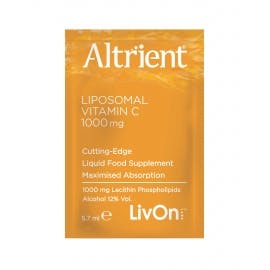Lypo-spheric Vitamin C for sports people
Lypo-spheric Vitamin C for sports people
By Jenny Tschiesche
As someone who played a lot of sport in her youth I ‘hung out’ with lots of other sporty people. Many of those went on to achieve great things. In fact many of those have played sport at a national level, be that cricket, field hockey or even dragon-boat racing.
What do all these sporty people have in common? By playing sport at such a high level and training with the frequency that they need to to be the best at their game they will undoubtedly have depleted their bodies of vitamin C. There is much evidence to support this hypothesis. Let me tell you more because knowing this might help you exercise more frequently, get more out of your exercise and it may even help you lose weight. Now, how is that for “a little bit of knowledge taking you a long way”?
If you are a long-distance runner, a tri-athlete or an endurance sport participant you may be familiar with experiencing multiple upper respiratory tract infections. Many endurance athletes experience upper respiratory tract infections. It is a common ailment suffered by such athletes. So here is another link that may interest you. A fantastic study by Peters et al addressed the possible role of vitamin C in preventing these infections. He found that 14 days after an ultra-marathon i.e. one greater than 26.2 miles in distance 68% of those using a placebo (dummy pill) had developed an upper respiratory tract infection versus just 33% of those using the Vitamin C supplementation.
Yet, if exercise depletes vitamin C does it stand to reason that performance could be enhanced by boosting levels of vitamin C. Well, yes. A chap called R.E.Keith reviewed two studies carried out by the scientist Namyslowski. It was Namyslowski who found that “athletes receiving a one-gram vitamin C supplement showed increased work capacity at a heart rate of 170 beats per minute”. So it is good to know that you can actually get more out of the same body by ensuring sufficient levels of vitamin C
Even more fascinating for those of us who are exercising in order to lose weight is that if you have less than optimal Vitamin C levels you are less likely to burn fat. This finding was reported in a 2006 article by Johnston et al where individuals with marginal vitamin C status burnt 25% less fat per kg of body weight during a treadmill test when compared to individuals with adequate vitamin C status. The article suggested that restoring your vitamin C levels by supplementing 500mg meant that the fat energy expended during the same exercise increased 4-fold.
A really simple and effective way to administer vitamin C is using Lypo-spheric Vitamin C in sachets. These 1g sachets are extremely portable and can even be used whilst exercising. Just add the contents of the sachet to your favourite drink or swallow the contents and wash down with water. The great thing about Lypo-spheric Vitamin C is that it has a special coating which means that very little if any of the vitamin C is broken down before it reaches the point in the body where it is needed most.
So, let’s get this straight, Vitamin C can not only help you stay healthy, meaning more training and competing opportunities, not only help boost your performance but it can also help you lose weight by burning excess fat.
Have you heard the phrase “if it is good enough for them then its good enough for me”? Well you may like to know that it is because of these effects of vitamin C on performance that the Canadian Olympic Team were using these very Vitamin C supplements to enhance their own abilities at this years London 2012. As if you needed any more convincing!
Peters, E.M., J.M. Goetzsche, B. Grobbelaar, and T.D. Noakes. Vitamin supplementation reduces the incidence of pos-trace symptoms of upper-respiratory-tract infection in ultra-marathon runners. Am. J. Clin. Nutr. 57(2): 170-174, 1993. [Abstract]
rnKeith, R.E. Ascorbic Acid. In: Sports Nutrition Vitamins and Trace Minerals. Edited by Ira Wolinsky and Judy A. Driskell. New York: CRC Press, 1997, p. 29-45119-131.
rnJohnston et al. Marginal vitamin C status is associated with reduced fat oxidation during submaximal exercise in young adults. Nutrition and Metabolism 2006, 3:35


.jpg?auto=format&q=45&w=262&trim=auto)
.jpg?auto=format&q=45&w=262&trim=auto)
